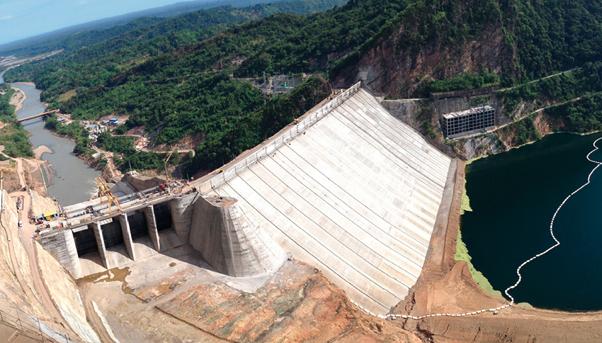
In the next five years, renewable sources of energy will be behind most of the growth in the global supply of electricity. In the latest report by the International Energy Agency (IEA), the additional amount of energy that will be brought on line by sources other than fossil fuels will be equal to 700 gigawatts (GW) – more than two times Japan’s installed production capacity.
“Renewables are poised to seize the crucial top spot in global power supply growth”, IEA Executive Director Fatih Birol was quoted as saying in a press release announcing the release of the report, “Medium-Term Renewable Energy Market Report 2015”. Birol presented the report in early October at the first energy ministers meeting in the history of the G20 in Istanbul, Turkey.
By 2020, renewable energy sources will be responsible for 26% of the world’s energy production, up from 22% in 2013, according to the report. This amount is greater than the energy demands of China, Brazil and India combined. The increase in renewable energy’s contribution to global production will be thanks to the burgeoning growth of developing countries. Again, by 2020, these countries will be responsible for two thirds of the net increase in the world’s energy production capacity by renewable sources. About half of the increase will come from hydro, while the other half will come from wind and solar photovoltaic panels. China alone will be responsible for 40% of this growth and one third of all new investments to be made.
The reason for this outsized contribution from developing countries lies with the strength of their growing economies as well as lower costs in the renewable energy sector amid technological innovation, among other factors. This trend will inevitably help in the global fight against air pollution while improving the welfare of millions of people.
When it comes to hydroelectric projects, Salini Impregilo is the world leader. It is working on 12 of them in 11 countries on four continents. Once these projects are completed, their combined installed capacity will be 12,600 megwatts (MW) with an annual production of 39,000 gigawatt-hours (GWh).
This amount would be enough to satisfy the energy demand of 58 million people, or the population of Denmark, Finland, Ireland, Norway, Sweden, Belgium and Holland combined.
The projects will also help avoid the emission of five million tonnes of greenhouse gases every year, an amount equal to the emissions of one million cars or what 200 million trees can absorb in a year.
“Affordable renewables are set to dominate the emerging power systems of the world,” IEA’s Birol said. “With excellent hydro, solar and wind resources, improving cost-effectiveness and policy momentum, renewables can play a critical role in supporting economic growth and energy access in sub-Saharan Africa, meeting almost two-thirds of the region’s new demand needs over the next five years”.
Looking beyond that timeframe, the International Renewable Energy Agency (Irena) has forecast Africa generating nearly a quarter of its energy needs by using indigenous, clean, renewable energy by 2030. In a report presented in October at the South African Renewable Energy Conference in Cape Town, South Africa, IRENA said a combination of renewable technologies could help the continent meet 22 per cent of its energy needs by that year. That’s a huge jump from five per cent in 2013.
“The technologies are available, reliable and increasingly cost-competitive,” IRENA Director General Adnan Z. Amin was quoted as saying in a statement. “Tapping into renewable energy resources is the only way African nations can fuel economic growth, maximise socio-economic development and enhance energy security with limited environmental impact.”
Energy and how it is produced and consumed is closely linked to sustainable development, as evidenced by the number of targets set by the Sustainable Development Goals of the United Nations that are related to it. In December, the UN will host the latest talks on climate change to try to reach a global agreement on how best to fight it without hurting economic growth.


